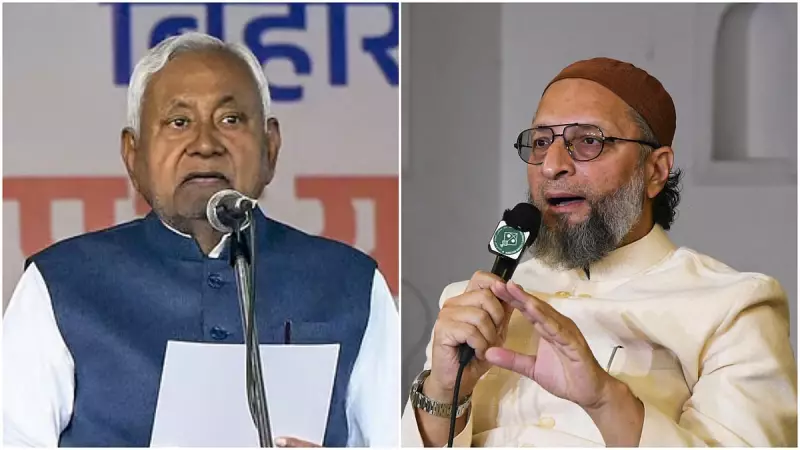
In a significant political development, All India Majlis-e-Ittehadul Muslimeen (AIMIM) president Asaduddin Owaisi has extended a conditional offer of cooperation to Bihar Chief Minister Nitish Kumar. The Hyderabad MP stated that his party would support Kumar's administration provided the chief minister maintains distance from communal politics.
Seemanchal Tour Yields Political Statement
The crucial announcement came during Owaisi's two-day tour of Seemanchal, the strategically important north-eastern region of Bihar. This area has gained political significance after AIMIM secured victory for five of its candidates in the recent state assembly elections, establishing a notable presence in Bihar's political landscape.
Owaisi's remarks, made on November 23, 2025, indicate a potential shift in political alignments in the state. The AIMIM chief emphasized that his party's support for the Kumar government would be contingent on the administration maintaining secular principles and keeping communal forces at bay.
Post-Election Political Mathematics
The recent Bihar assembly polls have created a complex political scenario where regional parties like AIMIM could play a decisive role in government formation and stability. The party's impressive performance in Seemanchal, where it won five constituencies, has positioned it as a potential kingmaker in certain political equations.
Political analysts suggest that Owaisi's statement represents both an opportunity and a challenge for Chief Minister Nitish Kumar. While it offers potential support from a significant regional player, it also comes with clear conditions that could influence the government's policy direction and political alliances.
Regional Implications and Future Scenarios
The development assumes greater importance given Bihar's history of coalition politics and the strategic significance of the Seemanchal region. This area, known for its substantial minority population, has increasingly become a focal point for identity-based politics in recent years.
Owaisi's conditional support offer comes at a time when political parties are reassessing their strategies following the assembly election results. The statement indicates that AIMIM is willing to engage with established regional players while maintaining its core ideological positions against communalism.
As Bihar moves forward with its new government, this development could influence how different political formations approach alliance-building and governance in the state. The coming weeks will reveal whether Chief Minister Kumar accepts these conditions and how this potential cooperation might shape Bihar's political future.




